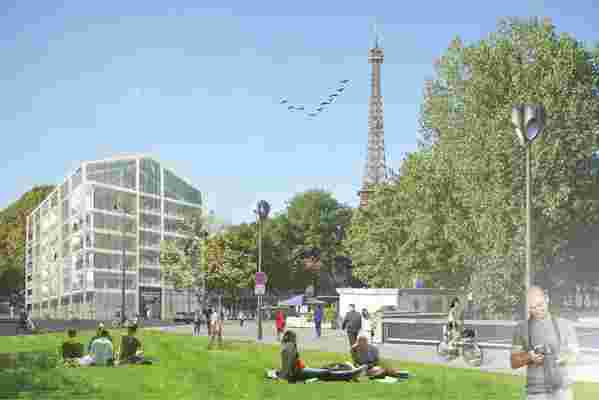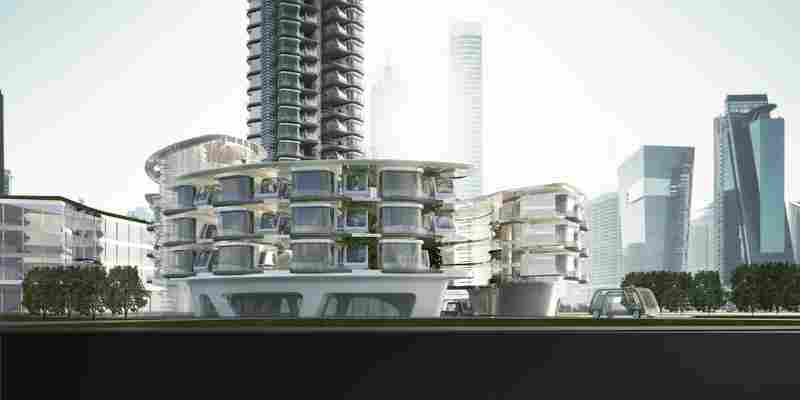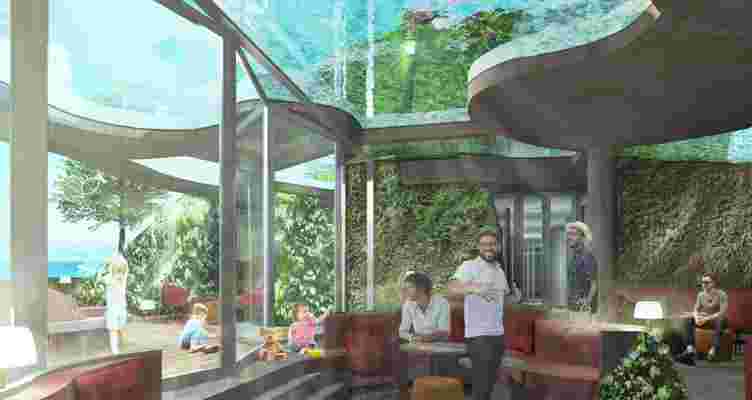If you’ve been to an airport recently, it may seem that travel is getting worse, but some creative new projects point to a brighter future for both travelers and the industry as a whole. Now in its 12th year, the Radical Innovation competition asks design and architecture firms, hoteliers, and students to come up with forward-thinking hospitality concepts. This year’s finalists—created by Varinot & Varinot Architectes, Aprilli Design Studio, and Network of Architecture—were selected by a jury of experts from a field of 50 projects from more than 20 countries. “It is always refreshing to discover new concepts that address today's culture in a new and meaningful way,” says John Hardy, president and CEO of The John Hardy Group and the founder of Radical Innovation. “They leveraged emerging technologies and socially conscientious, sustainable global trends to create unique hospitality experiences that we felt not only had the greatest ability to impact the future of travel but were also feasible in the near future.”

A rendering of a design by the firm Varinot & Varinot Architectes shows a concept for a new type of sustainable hotel.
Varinot & Varinot Architectes of Paris has created the Aquaponic Experience Hotel, which incorporates an aquaponic system throughout the structure. The system includes hydroponic plants, which purify the water and receive nutrients from the waste of farmed fish, as well as a mechanism that continuously recycles rainwater. The hotel produces fruits, vegetables, and fish for the restaurant, seaweed for the spa, and flowers and herbs in the guest rooms.

A rendering shows a design by Aprilli Design Studio that includes pods that transfer visitors to and from long-distance destinations.
Aprilli Design Studio’s Autonomous Travel Suite allows you to start enjoying your hotel as soon as you step out of your front door. The Los Angeles–based firm devised driverless mobile suites that transport travelers to their final destination and are equipped with compact sleeping, washroom, and working areas. When the suites reach the Autonomous Hotel in the final location, they are docked and the unit connects to a larger suite. The vehicles can also serve as a personal car during the trip.

The Italian-based firm Network of Architecture submitted a design meant to help single parents and children better handle family changes in a more therapeutic hotel space.
Le Colline Incantate was submitted by Network of Architecture, a firm in Bolzano, Italy. Set in the hills of northern Italy, the hotel is designed as a haven for single parents and children experiencing family changes. The firm worked with psychologists on the design to create therapeutic areas for individual and group sessions. The plant-covered retreat is built into the landscape and designed with cross-ventilation to eliminate the need for thermal insulation.
Designed by Polish students, this rendering shows an autonomous vehicle that meets travelers at the airport and becomes part of the overall room once it reaches the hotel.
In addition to the three finalist projects, the Room Extension Solution (RES) by Daniel Czyszczoń and Michał Witalis of Cracow University of Technology in Poland was named the student winner. The autonomous vehicle meets travelers at the airport and serves as a mobile hotel room. The RES becomes part of the overall room once it reaches the hotel. The Floating Hotel by Dinh Tam of Ho Chi Minh City University of Architecture in Vietnam—which combines fishing, farming, and hospitality—was awarded an honorable mention.
The firms responsible for the three finalists will pitch their ideas at the New Museum on October 3, and a live-audience vote will determine the winning entry. That winner will receive $10,000 and all firms will have the opportunity to meet with experts who will advise them on how to realize their projects and bring them to the market.
